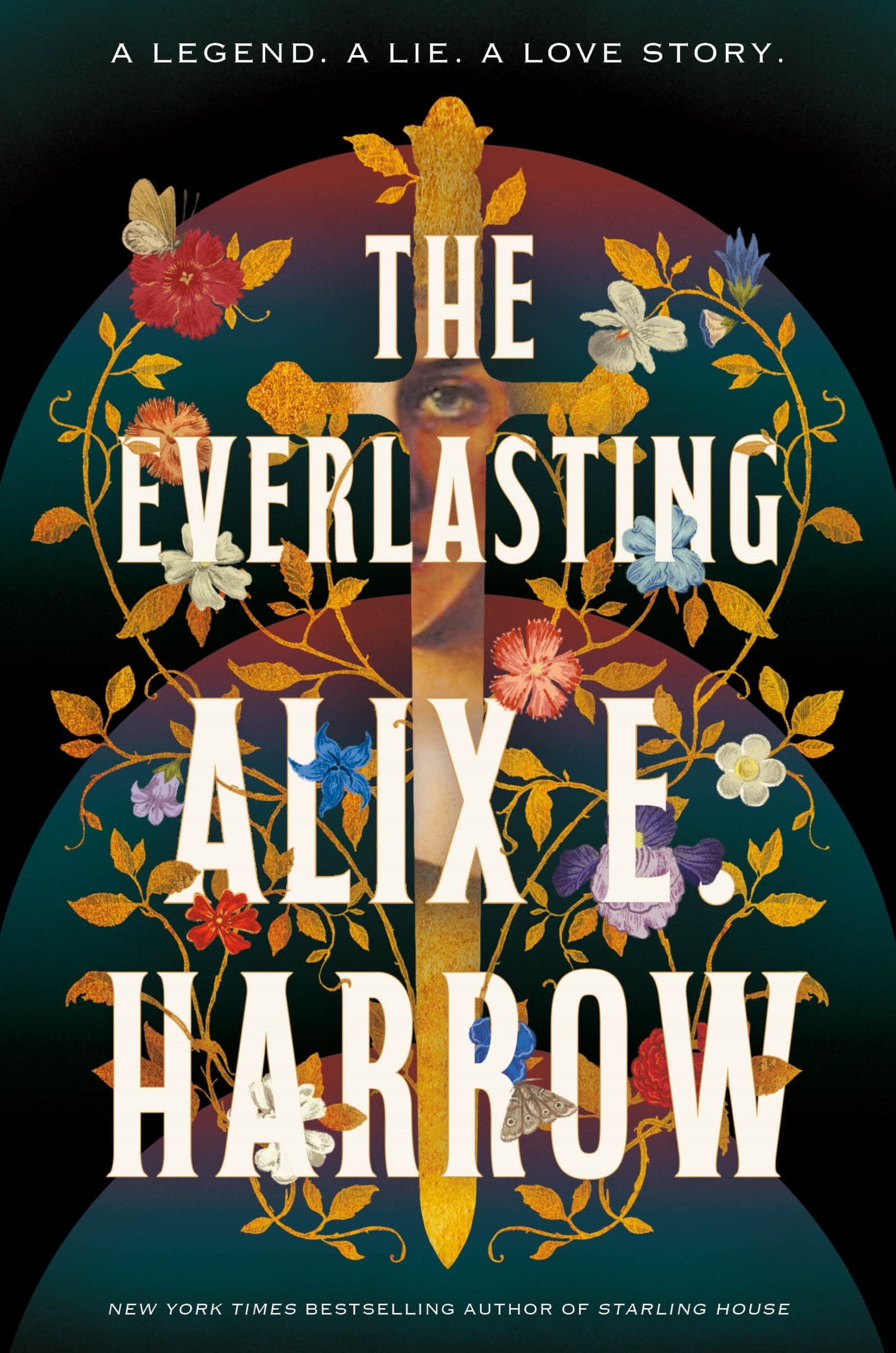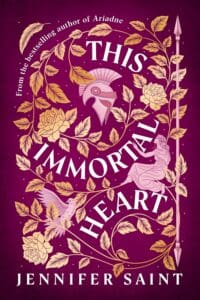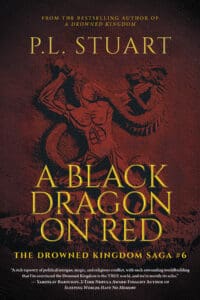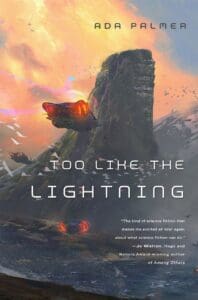
Synopsis
Sir Una Everlasting was Dominion’s greatest hero: the orphaned girl who became a knight, who died for queen and country. Her legend lives on in songs and stories, in children’s books and recruiting posters—but her life as it truly happened has been forgotten.
Centuries later, Owen Mallory—failed soldier, struggling scholar—falls in love with the tale of Una Everlasting. Her story takes him to war, to the archives—and then into the past itself. Una and Owen are tangled together in time, bound to retell the same story over and over again, no matter what it costs.
But that story always ends the same way. If they want to rewrite Una’s legend—if they want to tell a different story–they’ll have to rewrite history itself.
Review
Hello again dear reader or listener, today I’m treating you to another Lady Knight book because can we really ever have enough of them in our lives? I don’t think so!
With a big thanks to the Tor team for granting my request for an eArc of this, I promise honest ravings.
I hadn’t read any of Harrow’s other books yet even though I do have some in my tbr – and after this frankly, they all went in there so fast – so I didn’t know what to expect from her as an author even though I’d heard so much good stuff. A lot of what I will say henceforth about her authorly skills will be an understatement, which should not be news to you by now, dear reader, as this book has been justifiably lauded across the board for days now since it released, and even before that.
If you’ve caught any of my reviews in the past you know I have a soft spot for characters meeting across time – I grew up with Doctor Who, ok? And that is pretty much all I’ll say about the plot of this book even though I feel some of the blurbs out there say way too much. In fact, the blinder you go in the better this book is. But fine, I guess I will spill some choice beans.
Weaving together homages to our own tales of knightly valor of old with conversations on trauma, war, manipulated history, propaganda, colonialism, love, duty, honor, and destiny – to only name a few – Harrow does not present the reader with a lighthearted and simple read. We are given food for thought wrapped in a passionate and lyrically written fantasy package. Not only is the narrative voice beautiful and engaging, but it is downright heartbreaking at times. Harrow’s narrators don’t merely talk to the reader but they transport us into this account of impossible choices and we can only follow along hoping for the best but emotionally preparing for the worst. Owen and Una are two characters whose lives are so intrinsically intertwined across time that thinking of them apart is nearly impossible. They complement one another so perfectly and for a solid chunk of this story they’re not even nice to one another! But hard truths are rarely nice, are they?
Also, for the Brienne of Tarth fans out there, Una is your next favorite knight, while for those of us who never got over Milo Thatch, Owen is our guy. I’m not even being facetious.
It is extremely hard to discuss what worked so well in this without spoilers but it is truly the main favor I can do for you, dear reader: to just push you blind towards this book with a cheery good luck for morale. And trust me, at times you’ll really need it. However, I can say that Harrow also tackles PTSD in such an interesting and nuanced manner. You could argue that a very central plot point is one big metaphor for it in fact, but she carries that idea into one unifying conversation about each of us being a sum of our parts, and how much our past can define us. Moreover, any time I thought I had an idea of where the story would go next or what the next big reveal would be, the author surprised me. Harrow plays on reader expectations as much as she caters to them, to deliver a story that doesn’t confuse but also never allows you to think you can know what to expect. She defies while also meeting genre expectations in satisfying ways you’re pleasantly surprised by. What this means for the reader is that you so deeply understand her characters and the choices they make as a result, that you can both identify with them, and watch from a certain distance that feels like you’re on the other side of a two-way mirror and they cannot hear your warning as you are yelling at them trying to stop the inevitable.
Speaking of inevitable, the villain in all this was truly chef’s kiss. They were both complex and interesting but at the same time threatening and cruel in a way that I’ve not often seen in recent times. You may understand their motivations, hell, by the end your heart might break a little for them, but never in any redeemable way. You don’t sympathize even when you have the full picture of who they are and their whys. And I’m not saying this as a dig to lovable villains or decayed ones. I love me a misunderstood baddie. But this is something different entirely that I have craved for a while. Sometimes you just want a bad guy who is bad. Whose motivations are selfish and leave no room for moral doubt. And even then, Harrow gives us so much room for character and narrative analysis that would make literature professors weep. Seriously, the academic in me was thriving throughout this whole book for more than one reason. Perhaps the main one being the topic of history being written by the victors, or alternatively the way the author touches on how narratives can be spun and changed so as to benefit specific people or agendas. A masterclass honestly.
I know this all really boils down to me saying, trust me. But really, trust me.
Harrow gave us a sweeping tale of love and the weavings of history – not to mention a deranged horse – that is truly worth reading and then pondering for a while. It will certainly be one I will reread more than once and, dare I say, this has the trappings of a future classic of the genre.
Until next time,
Eleni A.E.









Leave a Reply